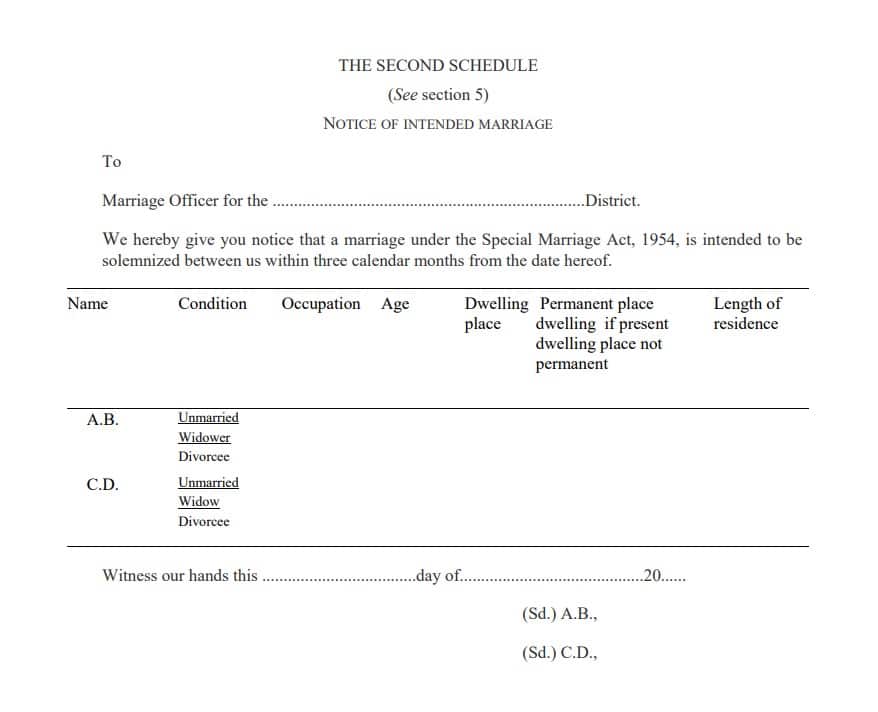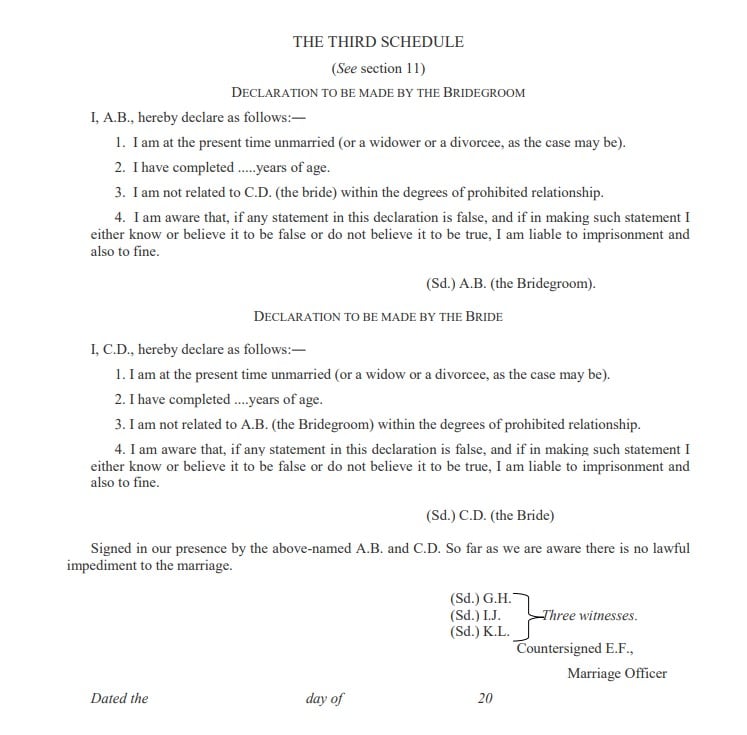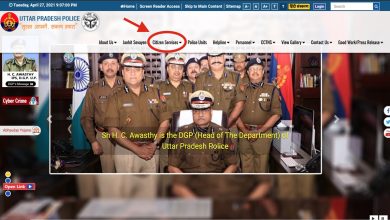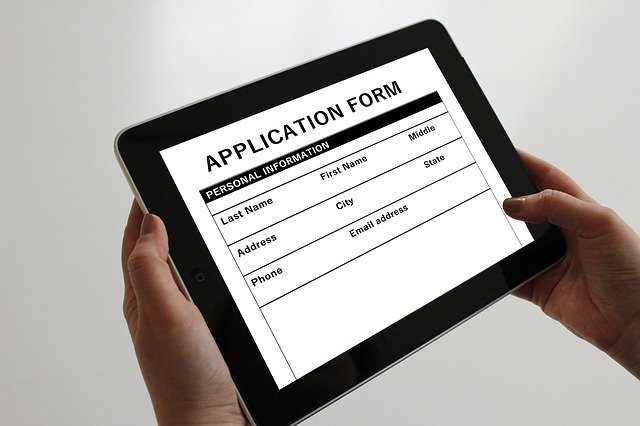Process Of Court Marriages In India
Want to know more about court marriages in India? Well, if you and your partner are of marriage age and are thinking about having a court marriage, you should be aware of the legal requirements and procedure.
For example, What is the validity of court marriages? What are the documents required for court marriages in India?
What are court marriage in India fees? Keep reading to find the answers to these questions and more about court marriage in India.
Article Summary
Court Marriages In India – An Overview
India is a secular country but issues like marriage are often governed by personal laws that differ from religion to religion. When 2 individuals from different religions choose to get married, the difference in personal laws they are governed by could become a cause for concern. That’s where a court marriage and the Special Marriage Act of 1954 comes into play.
Court marriages in India help couples from different faiths solemnize their union without having to convert to another religion or make other societal compromises. Though it may sound similar, a court marriage in India and marriage registration in India are not the same.
The latter is a legal requirement all couples must comply with irrespective of the type of wedding ceremony performed.
What others are reading
- Majhi Ladki Behan Yojana Maharashtra – Benefits, Eligibility & How to Apply
- Pet Cremation Bangalore – A List Of Pet Funeral Services Providers
- Complete Guide To BBMP Cremation In Bangalore
- Get Cremation Support From Top Funeral Services In Bangalore
- List Of AIIMS Collages In India
What is court marriage in India?
A court marriage in India refers to the solemnization of a marriage under the Special Marriage Act, 1954. There is no religious ceremony involved. The couple may belong to the same faith or any 2 different religions/ castes/ nationalities. The wedding is solemnized by a marriage officer in the presence of 3 witnesses.
What is the Special Marriage Act, of 1954?
The Special Marriage Act, of 1954 came into being as a way to solemnize civil marriages between couples following different castes and religions without either having to resort to religious conversion.
The Act lists provisions for what constitutes as a lawful marriage, the prerequisites for a marriage to be conducted under this Act, marriage registration, the dissolution of inter-faith marriages and more.
What was the purpose of the Special Marriage Act, of 1954?
The Special Marriage Act, of 1954 was established to permit people who could not be married under personal laws like the Hindu Marriage Act of 1955 or Muslim Personal Laws to be wed and have their marriage recognized by law.
Why is there a need for the concept of court marriage in India?
India is a land of many religions and castes. Individuals following different religions do not always have the support of their families and hence such inter-caste/ inter-religion marriages become difficult. The court marriage law in India helps overcome this hurdle and gives these couples a legal way to marry a partner of their choice.
What is the validity of court marriages?
Court marriage validity in India is certified by the marriage certificate issued at the time of the wedding. This certificate deems the marriage legal and valid for as long as the couple wishes to be married.
Who is eligible for Court Marriages in India?
To be eligible for a court marriages in India, both individuals should meet the below criteria:
- At least one of the parties to the marriage should be an Indian citizen
- They must both be unmarried. If either party had been married before, then, at the time of application for court marriage, neither party should have a living spouse or the earlier marriage must have been dissolved legally.
- They must be in a position to give free and full consent to the marriage
Both individuals must be of sound mind and not be suffering from any kind of mental disorder that makes them unfit to make decisions related to marriage and procreation. They must also not have been subject to recurrent insanity attacks.
- They should adhere to the age of court marriage in India
According to the prescribed age of court marriages in India, men should be over the age of 21 years and women should be over the age of 18 years at the time of applying for the marriage.
- They should not fall into the degree of prohibited relationships or the customs governing one of the parties should permit a marriage between them notwithstanding these prohibitions.
These degrees of prohibited relationships are listed in Part I and Part II of the First Schedule of the Special Marriage Act, 1954. In essence, the court marriage in India rules states that the 2 individuals should not be related to each other by blood.
What is the process of Court Marriages in India?
The process of court marriages in India is simple. Here are the steps you need to follow for how to get a court marriage in India.
Step 1: Submit notice of intended marriage
Once the couple has ensured that they meet the eligibility criteria, one or both parties may contact the Marriage Officer in the district where either party has a permanent address for at least the last 30 days.
Notice for intended marriage must be submitted in writing according to the format prescribed in the second schedule of the Marriage Act. The marriage is usually scheduled to be conducted within 3 days of completing 30 days from submitting the notice.

Step 2: Publication of notice
According to the court marriage in India procedure, the marriage officer receiving the notice must maintain the same with the records of his/ her office in a Marriage Notice Book. If both parties are not living in the local limits of the district, a copy of the notice will be shared with the Marriage Officer of the district in which the other party lives.
Until recently, a copy of this notice was required to be published in a conspicuous place of the Marriage Officer’s office for 30 days to invite objections to the marriage.
However, a ruling by the Allahabad High Court has since made this step optional. Marriage notices under the Special Marriage Act will be published only if the couple requests the same in writing.
Step 3: Inquiry into objections if any
If an objection is raised to the notice within 30 days of its publication the Marriage Officer is required to look into the matter and arrive at a decision. This decision must be arrived at within 30 days of the objection being raised. The Marriage Officer may:
- Request documentary proof
- Summon and examine witnesses under oath
- Request affidavits
- Issue commissions for witness scrutiny
If the objection is deemed invalid as per the court marriage in India rules, the court marriage India process can go on as scheduled. The person raising the objections found to be unreasonable or made in bad faith may be fined up to Rs 1000. This amount will be awarded to the bride and groom.
If the marriage officer decides against solemnizing the marriage based on an objection, the bride and groom may appeal to the district court. This appeal must be made within 30 days of the Marriage Officer’s decision.
Step 4: Solemnization of the marriage
If the issue being objected to is dealt with or if there is no objection to the marriage, the bride, groom and 3 witnesses must submit a signed declaration of the same in the Marriage Officer’s presence.
The declaration must then be countersigned by the Marriage Officer before the wedding can be scheduled. The format of this declaration is prescribed in the Third Schedule of the Special Marriage Act.

The marriage may then be solemnized in the Marriage Officer’s office or any place of the couple’s choosing within a reasonable distance from the office. The couple must vow to accept the other party as their lawful husband/ wife in the presence of the Marriage Officer and 3 witnesses.
Following this, details of the marriage are entered in the Marriage Certificate Book and signed by the newlyweds and witnesses. A marriage certificate is also issued to the couple.
What are court marriage in India fees?
The court marriage in India fees differ from state to state. It is usually between Rs 500 and Rs 1000. There may be an additional fee if the couple chooses to solemnize the marriage outside the Marriage Officer’s office.
What are the documents required for court marriage in India?
The court marriage documents list in India to be submitted include:
- Individual affidavits with the individual’s date of birth, marital status and affirmation that they do not fall into any degree of prohibited relationships.
- Recent passport-sized photograph
- Proof of address
- Copy of valid PAN card
- Copy of valid identity proof
- Copy of spouse’s divorce/ death certificate, if applicable
- Signed copy of the notice of intended marriage
What are the documents needed by a foreign party for court marriage in India?
In addition to the above listed documents needed for court marriage in India, The Court Marriage in India documents required for foreigners wishing to marry an Indian citizen are
- Proof of residential address in India
- Copy of a valid passport
- Original birth certificate
- Copy of valid Visa
- No objection certificate from the party’s home country embassy regarding free consent to be married
What is the difference between Court Marriage and Marriage Registration in India?
Marriages conducted under the Special Marriage Act, 1954 are automatically registered according to court Marriage in India rules. Marriages celebrated according to any other personal law or custom must be additionally registered by a Marriage Officer.
By definition, a court marriage is one where the marriage is solemnized and registered according to the Special Marriage Act, of 1954. On the other hand, Marriage Registration in India refers to the registration of a marriage after a ceremony has been conducted under personal laws.
Some of the other differences are:
- The court marriage in India procedure extends over about a month while the registration process is much quicker.
- A court marriage requires 3 witnesses while no such witnesses are required for marriage registration.
- A court marriage must take place in the physical presence of a marriage officer while marriage registration formalities can be completed online or offline.




